You can restart declarative pipeline from any stage. It will works if you keep build workspace and if errors rised outside pipeline execution, not in code or test or dependencies. In that case you need to update your sources.
For some cases you may need to use gradle(dotnet mvn etc ...) clean You can place it in post{always {}} step if yours code must be recompiled.
Examples
Jenkins side
- simple example:
pipeline {
agent {label 'linux'}
stages {
stage('Random exit code') {
steps {
script{
// random result implementation based on exit code
def status = sh(
returnStdout: true,
script:'''
bash -c 'echo $(( $RANDOM % 2 ))'
'''
).toInteger()
print("script status: $status")
if (status != 0) {
currentBuild.result = 'FAILED'
}
}
}
}
}
post{
success{
echo 'ok'
}
failure{
echo 'fail'
// rebuild same pipeline
build wait: false, job: '/dev-env/simple_example'
}
}
}
jenkins post states
- Advanced example with declarative pipeline stage restart:
Pipeline:
pipeline {
agent {label 'linux'}
stages {
stage('build') {
steps {
sh 'touch testfile'
}
}
stage('parralel tests') {
parallel{
stage('unit test'){
steps{
sh "echo '${STAGE_NAME} stage' >> testfile"
sh 'cat testfile'
}
}
stage('smoke test'){
steps{
sh "echo '${STAGE_NAME} stage' >> testfile"
sh 'cat testfile'
}
}
stage('postman api test'){
steps{
sh "echo '${STAGE_NAME} stage' >> testfile"
sh 'cat testfile'
}
}
}
}
stage('integration tests') {
steps {
sh "echo '${STAGE_NAME} stage' >> testfile"
sh 'cat testfile'
}
}
}
post{
success{
// cleanWs()
// cleanWs() commented becouse this build always success.
// in real world you need to cleanup your workspace if run is OK
sh 'cat testfile'
}
failure{
sh 'cat testfile'
echo 'something is failed'
}
}
}
output:
11:58:49 + echo integration tests stage
11:58:49 [Pipeline] sh
11:58:49 + cat testfile
11:58:49 unit test stage
11:58:49 smoke test stage
11:58:49 postman api test stage
11:58:49 integration tests stage
11:58:49 [Pipeline] }
11:58:49 [Pipeline] // stage
11:58:49 [Pipeline] stage
11:58:49 [Pipeline] { (Declarative: Post Actions)
11:58:49 [Pipeline] sh
11:58:49 + cat testfile
11:58:49 unit test stage
11:58:49 smoke test stage
11:58:49 postman api test stage
11:58:49 integration tests stage <<<<
11:58:49 [Pipeline] }
11:58:49 [Pipeline] // stage
11:58:49 [Pipeline] }
11:58:49 [Pipeline] // node
11:58:49 [Pipeline] End of Pipeline
11:58:50 Notified JIRA that a build has completed.
11:58:50 Finished: SUCCESS
Replay stage:
 Replay output:
Replay output:

12:02:32 + echo integration tests stage
12:02:32 [Pipeline] sh
12:02:32 + cat testfile
12:02:32 unit test stage
12:02:32 smoke test stage
12:02:32 postman api test stage
12:02:32 integration tests stage
12:02:32 integration tests stage
12:02:32 [Pipeline] }
12:02:32 [Pipeline] // stage
12:02:32 [Pipeline] stage
12:02:32 [Pipeline] { (Declarative: Post Actions)
12:02:32 [Pipeline] sh
12:02:33 + cat testfile
12:02:33 unit test stage
12:02:33 smoke test stage
12:02:33 postman api test stage
12:02:33 integration tests stage
12:02:33 integration tests stage
12:02:33 [Pipeline] }
12:02:33 [Pipeline] // stage
12:02:33 [Pipeline] }
12:02:33 [Pipeline] // node
12:02:33 [Pipeline] End of Pipeline
12:02:33 Notified JIRA that a build has completed.
12:02:33 Finished: SUCCESS
Explanation:
Look in post stage comments
You can see that integration test stage runs in same env. That meens you dont need to restart build stage for binary compilation
12:02:33 + cat testfile
12:02:33 unit test stage
12:02:33 smoke test stage
12:02:33 postman api test stage
12:02:33 integration tests stage
12:02:33 integration tests stage <<<<<<<
You can compile simple and advanced example if you wish. But i think it will be overkill
Gradle side
- Use gradle test retry plugin
- You may add some logic in your pre&post wrappers to check test status and replay cases at some conditions

